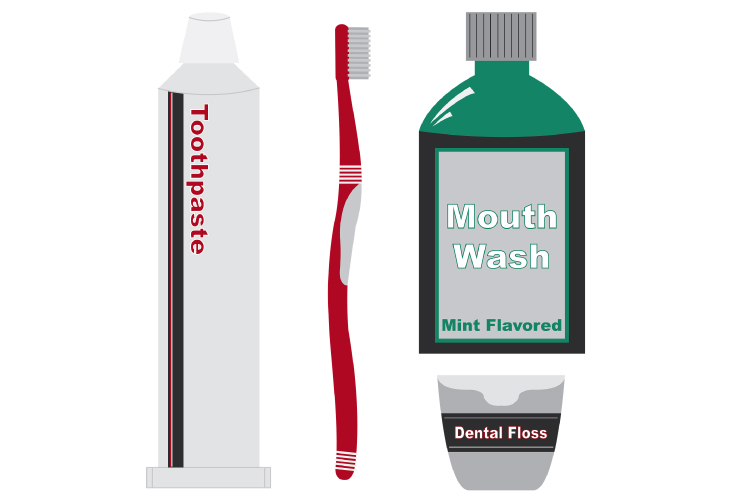
The General Dentistry study found that using a germ-killing mouth rinse twice a day, in addition to regular brushing, can significantly reduce the occurrence of plaque, as well as gingivitis, the beginning stage of gum disease. Academy of General Dentistry Publication.
Do you use a Mouthwash?
How often and what kind? Like toothpaste, floss, and even toothbrushes, there are many different kinds of mouthwash with benefits that vary. How does someone choose the right one? The simplest answer is to talk to your dentist. Of course, while in this post we will be outlining the different kinds of mouthwash and what they can do for you, talking to your dentist is the best way to ensure you make the right decision about your dental health.
Mouthwash Ingredients
Mouthwashes are most commonly used to fight tooth decay, freshen breath, and reduce gum disease, among other things. According to the ADA, the basic ingredients found in mouthwashes range from water, alcohol, cleansing agents, and flavoring.
The active ingredients in mouthwash depend on the type of rinse. The four general groups of these ingredients are:
- Antimicrobial agents, which act directly on oral bacteria to help reduce plaque, decrease the severity of gingivitis and control bad breath.
- Fluoride, which helps reduce tiny lesions (tooth decay) on tooth enamel and make teeth more resistant to decay.
- Astringent salts, which serve as temporary deodorizers that mask bad breath.
- Odor neutralizers, which act by chemically inactivating odor causing compounds.
Neutralize Bacteria
There are also recipes for homemade mouthwashes, or salt-water rinses, that help disinfect the mouth, neutralize bacteria, and reduce plaque. However, salt-water rinses tend to be more acidic than mouthwashes and are not recommended as an everyday treatment. Talk to your dentist about which option is best for you.

When Should Mouthwash Be Used?
For those who struggle to brush and floss daily, mouthwash is a supplemental tool that aids in total dental health. While it does not completely replace brushing and flossing, mouthwash does help neutralize odor and decay-causing bacteria that may have been missed in your dental care routine.
Some mouthwashes have anti-cavity agents, which help protect tooth enamel with fluoride. Often, these kinds of mouthwash are recommended for patients who don’t receive enough fluoride in their water sources or from toothpaste. To choose the best kind of mouthwash for you, asking your dentist is the best option. (ADA.com)

Discover the Smiles Dental difference today!
Are you ready for the happy, healthy smile of your dreams? When you choose Smiles Dental Services, you’re putting your smile in the hands of highly-trained professionals you can trust. Above all, we provide our patients with leading-edge dentistry that goes above and beyond.